Agricultural Equipment
Welcome to the forefront of agricultural innovation! As the global population continues to grow, the demand for efficient, sustainable, and productive farming practices is more critical than ever. Modern agriculture is undergoing a technological revolution, driven by advancements that promise to transform the way we grow, manage, and distribute food. This page explores the latest technologies shaping the future of agriculture, from cutting-edge machinery to data-driven solutions.
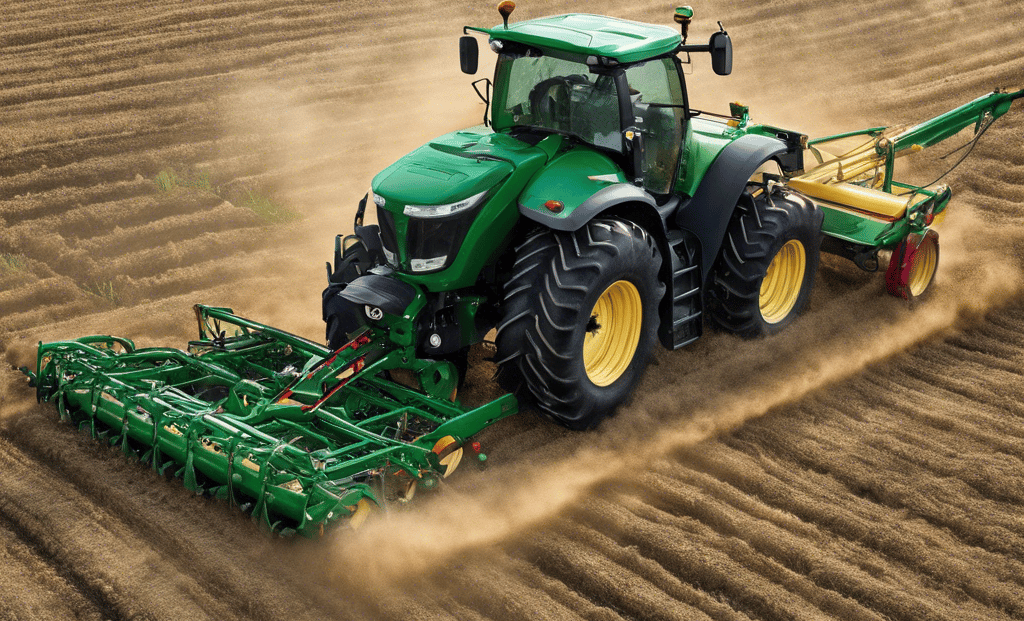

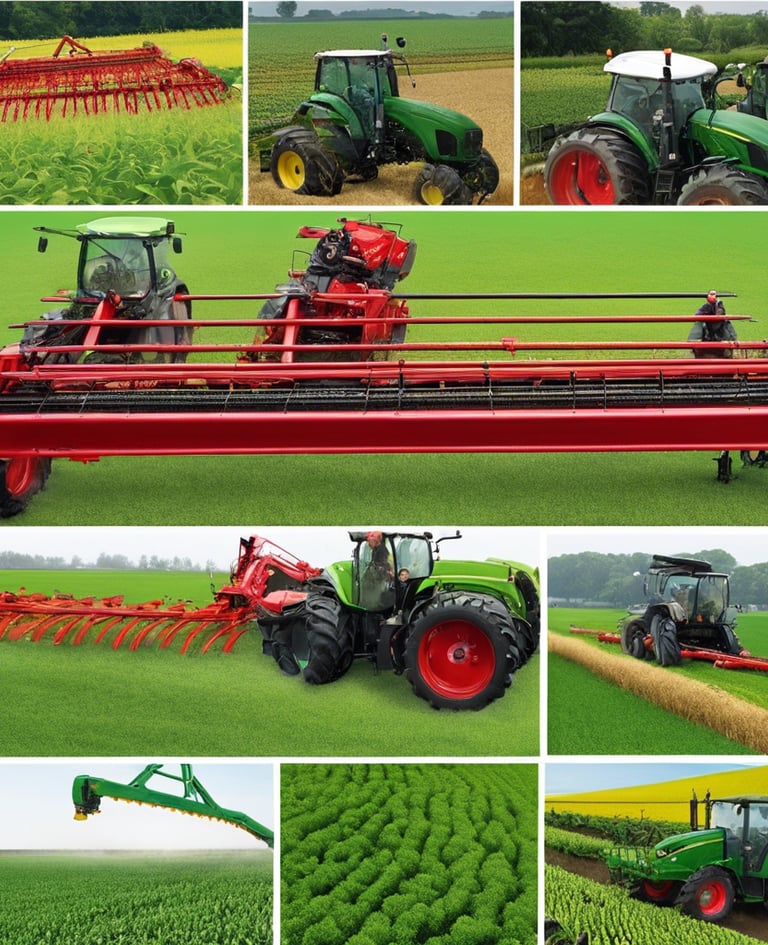

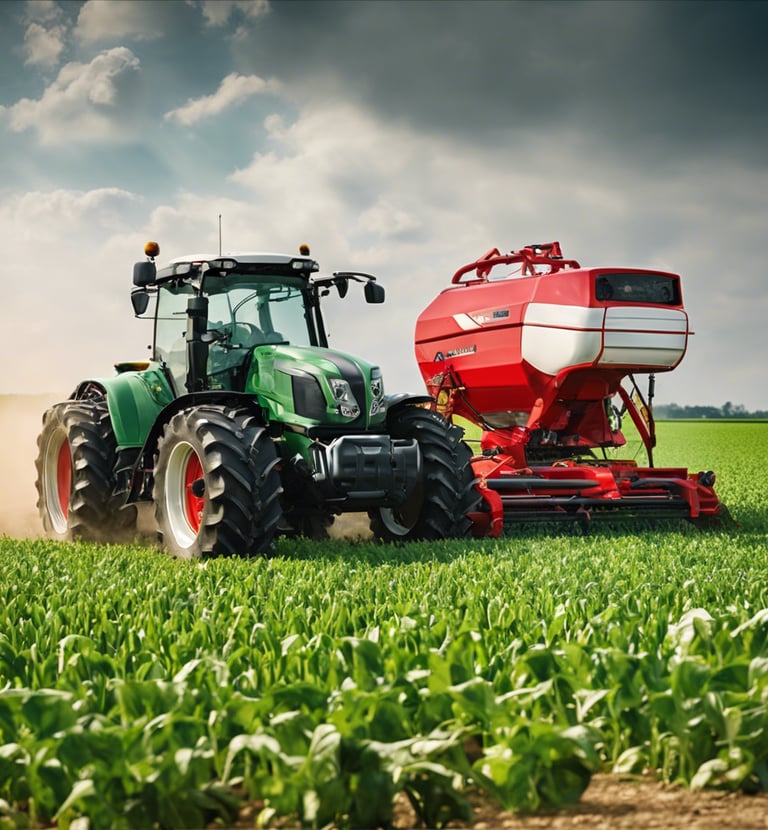

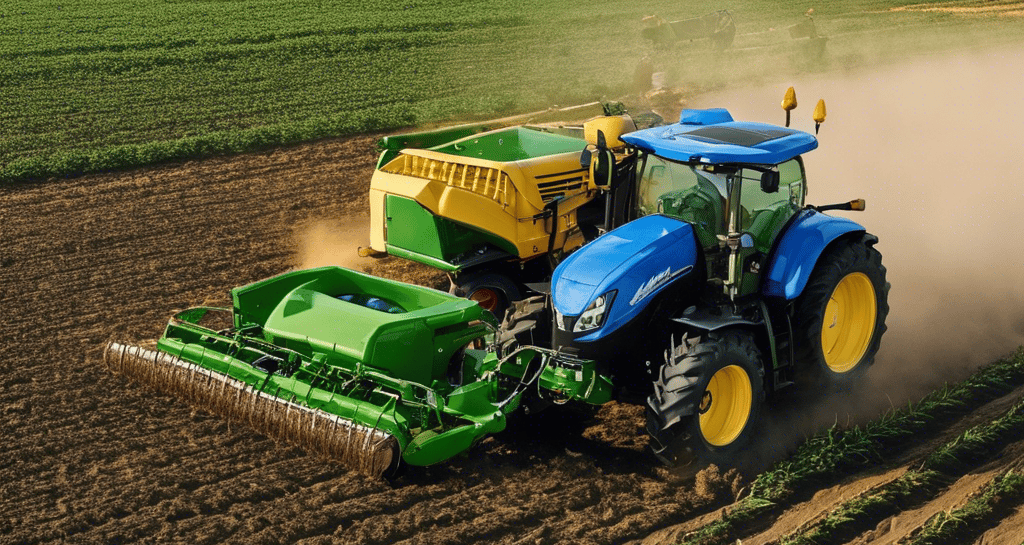

Key Technologies in Agriculture
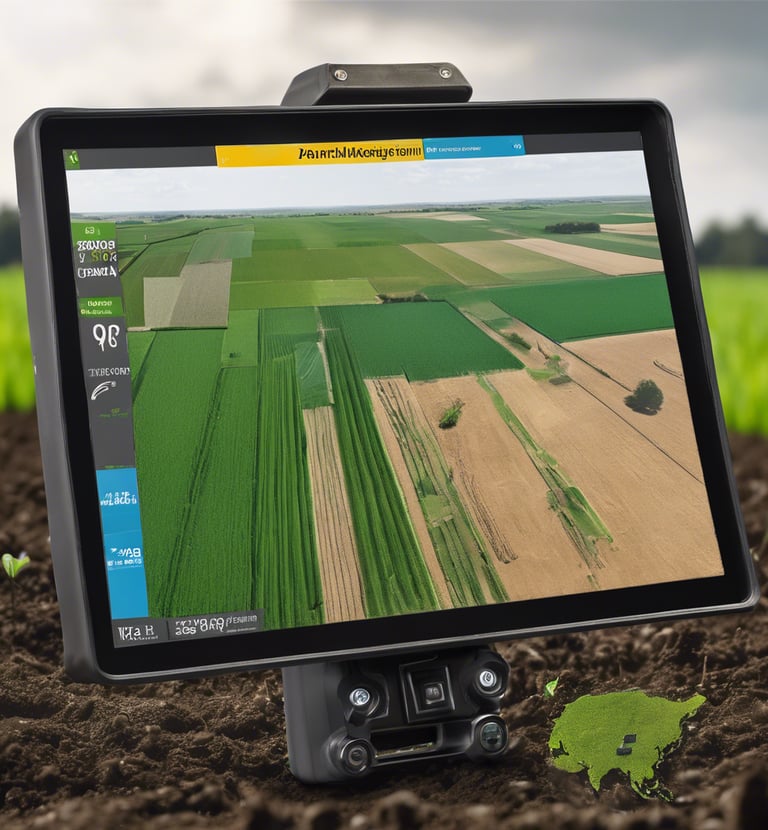

1.Precision Agriculture
Overview: Precision agriculture involves using technology to monitor and optimize crop yields with pinpoint accuracy. It includes tools like GPS-guided tractors, variable rate technology (VRT), and remote sensing.
Technologies:
GPS and GIS Systems: Enable precise mapping and tracking of field conditions.
Drones: Provide aerial imagery for monitoring crop health and soil conditions.
Variable Rate Technology (VRT): Adjusts the amount of inputs like water and fertilizers based on real-time data.
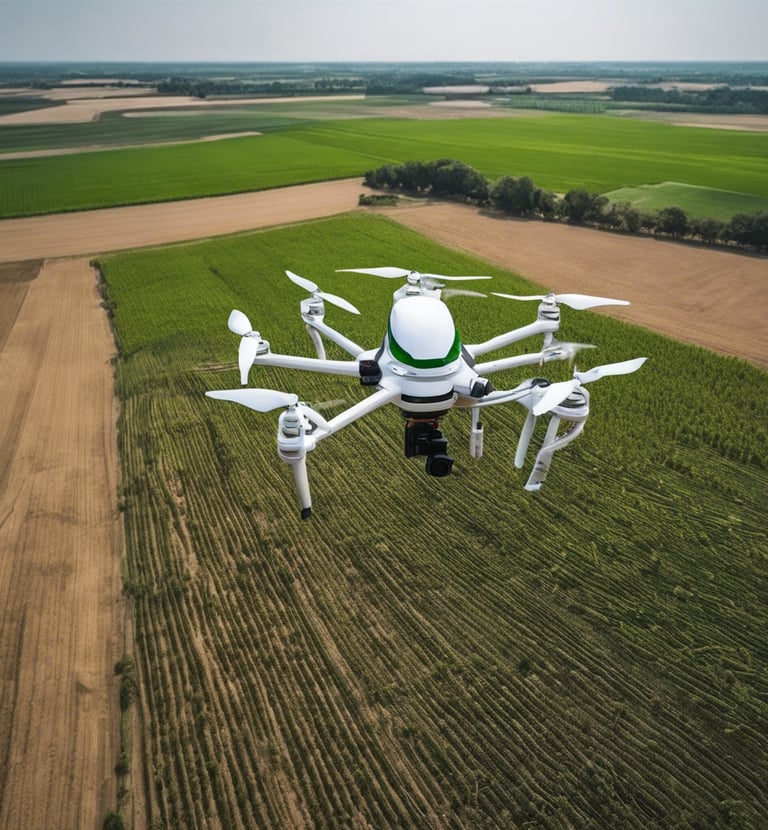

2.Drones and Aerial Imaging
Overview: Drones equipped with high-resolution cameras and sensors can capture detailed images and data about crops and soil.
Benefits:
Monitoring: Offers a bird's-eye view of crops, helping to identify issues like pest infestations or nutrient deficiencies.
Mapping: Creates detailed maps for precision farming and better decision-making.
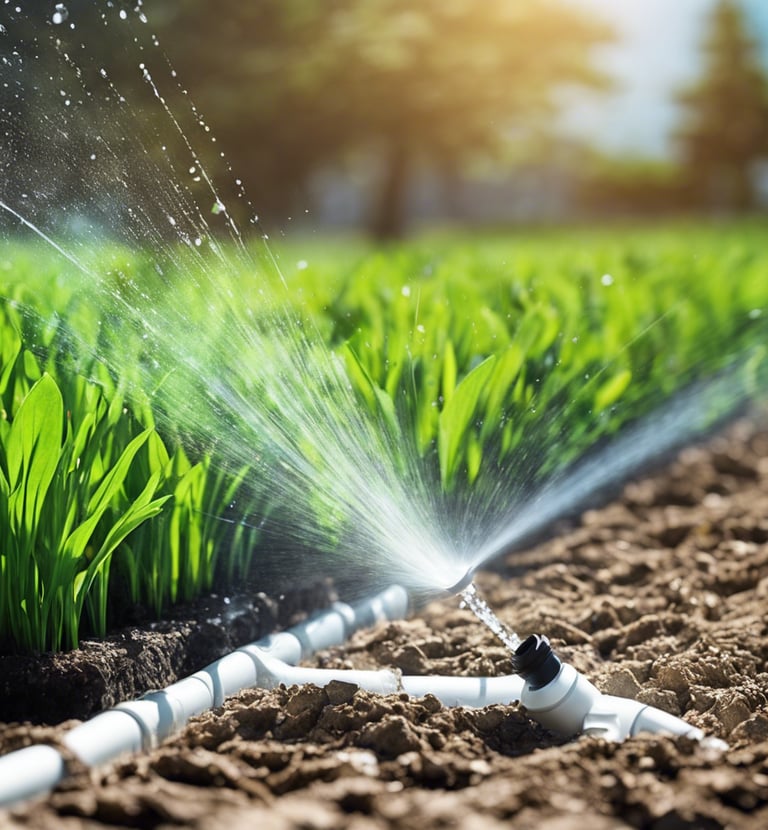

3.Smart Irrigation Systems
Overview: Smart irrigation systems use data from sensors and weather forecasts to optimize water usage.
Technologies:
Soil Moisture Sensors: Measure soil moisture levels to determine when and how much to irrigate.
Weather Forecast Integration: Adjusts watering schedules based on upcoming weather conditions.
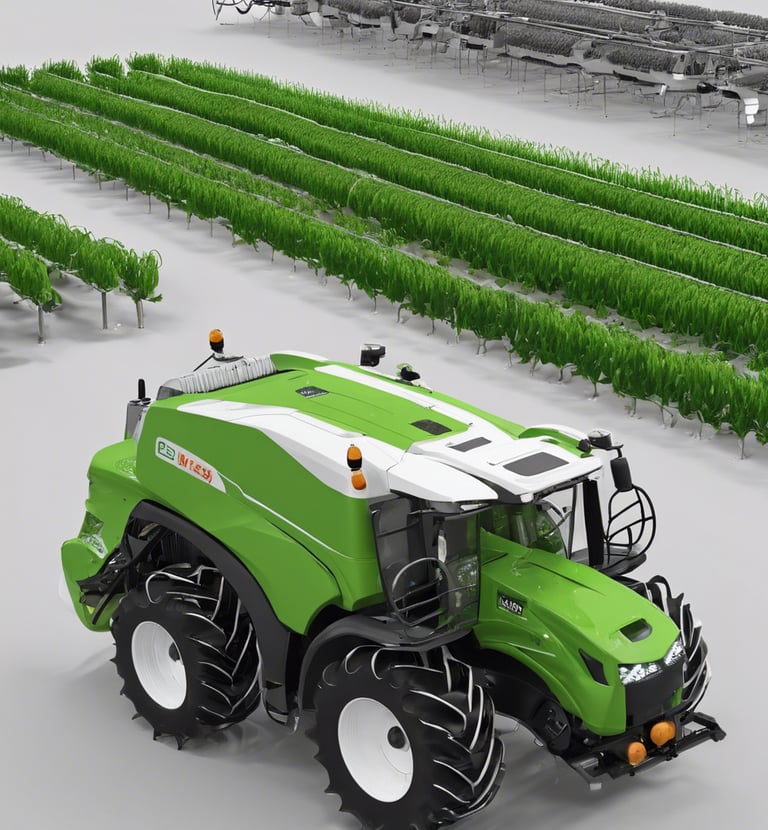

Overview: AI and machine learning are used to analyze vast amounts of agricultural data to make predictions and recommendations.
Applications:
Yield Prediction: Analyzes data from various sources to forecast crop yields.
Disease Detection: Uses image recognition to identify plant diseases early.
4.Artificial Intelligence and Machine Learning
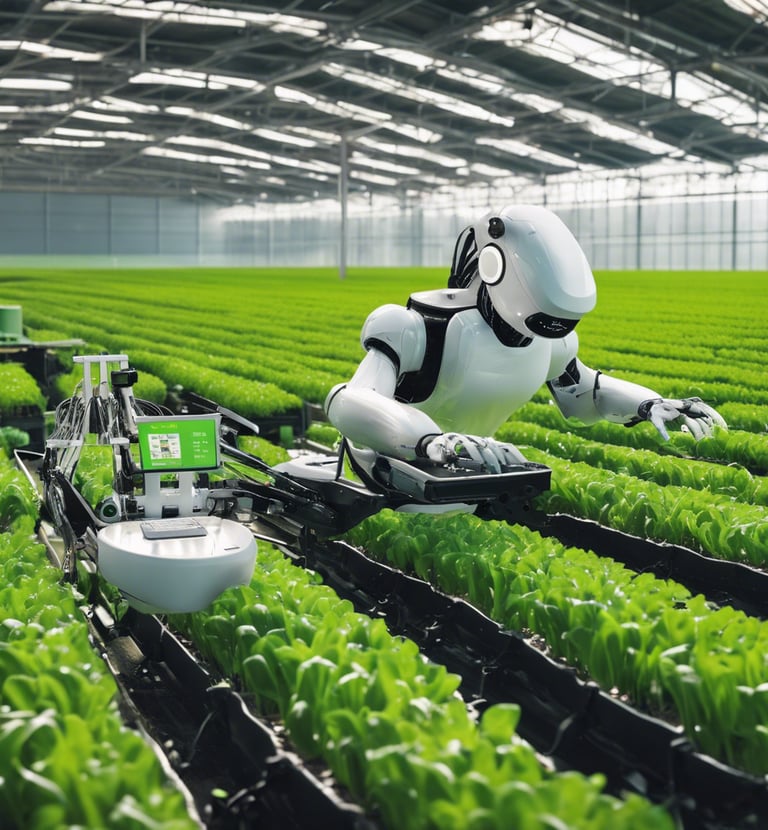

5.Robotics and Automation
Overview: Robotics and automation technologies are revolutionizing tasks from planting to harvesting.
Technologies:
Autonomous Tractors: Perform plowing, planting, and harvesting with minimal human intervention.
Harvesting Robots: Pick fruits and vegetables with precision, reducing labor costs and increasing efficiency.
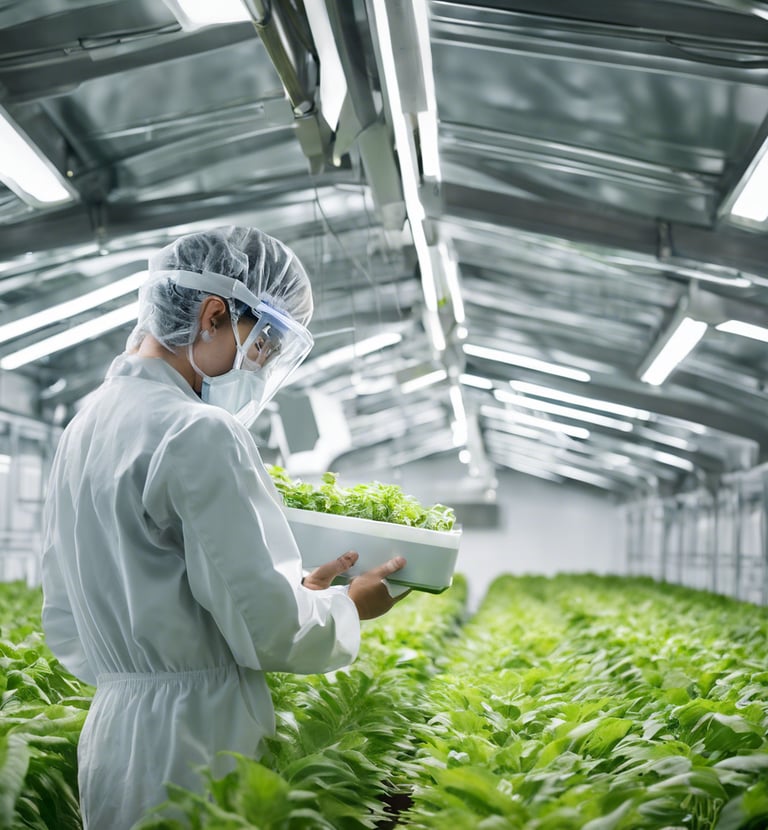

6.Biotechnology
Overview: Advances in biotechnology are improving crop varieties and pest management.
Technologies:
Genetically Modified Crops: Enhance resistance to pests, diseases, and environmental conditions.
CRISPR: A gene-editing technology that allows for precise modifications in crop DNA.
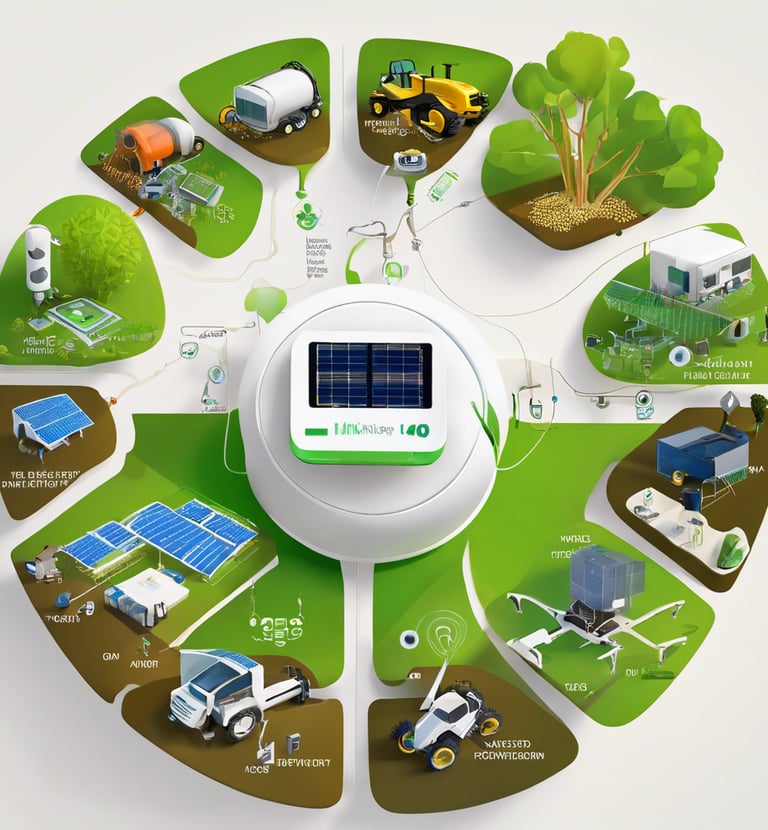

7.Internet of Things (IoT)
Overview: IoT devices collect and exchange data across agricultural operations to optimize performance.
Sensor Networks: Monitor soil health, crop conditions, and equipment performance.
Data Analytics: Provides insights for better management practices and decision-making.
Case Studies
Case Study 1: Precision Agriculture in Corn Farming
Overview: A large-scale corn farm implemented precision agriculture techniques using GPS-guided tractors and VRT.
Results: Increased yield by 15% and reduced fertilizer usage by 20%, leading to significant cost savings and environmental benefits.
Case Study 2: Smart Irrigation in Vineyards
Overview: A vineyard adopted a smart irrigation system with soil moisture sensors and weather forecast integration.
Results: Reduced water usage by 30% while maintaining optimal grape quality, resulting in improved sustainability and reduced operational costs.
Future Trends in Agricultural Technology
Vertical Farming: Growing crops in stacked layers or vertically inclined surfaces, often in controlled indoor environments, to maximize space and resource efficiency.
Blockchain for Food Traceability: Enhancing transparency and traceability in the food supply chain, from farm to table.
Augmented Reality (AR): Providing real-time, interactive information and guidance for farmers through AR applications.
Synthetic Biology: Creating new agricultural products and processes through advanced genetic engineering techniques.
Benefits of Agricultural Technology
Increased Efficiency: Automation and precision tools reduce the need for manual labor and minimize waste.
Enhanced Productivity: Advanced technologies lead to higher crop yields and better resource management.
Sustainability: Reduces environmental impact by optimizing resource use and improving soil health.
Cost Savings: Lowers operational costs through better management and reduced input requirements.
Conclusion
The latest advancements in agricultural technology are driving significant changes in the way we approach farming. By embracing these innovations, farmers can achieve greater efficiency, productivity, and sustainability. Stay tuned to our updates for the latest developments in agricultural technology and how they are shaping the future of farming.
About Agri Agro Grand Expo
Agri Agro Grand Expo International has served as a platform for bringing together many foreign as well as national visitors from all over the country to interact with leading national agriculture technology companies. The Agriculture Expo, held annually, is one of the leading national agriculture events of its kind, showcasing cutting-edge agricultural technologies. This exhibition in India traditionally attracts numerous Ministers of Agriculture, decision-makers, experts, practitioners, and trainers in agriculture, along with thousands of visitors from around the country.
contact :
expo@agriagro.in
exposulabh@agriagro.in
+91-9520099666
+91 -70601 71734
+91 -8791144200
© 2026 Agri Agro Grand Expo All rights reserved.
Mail:
